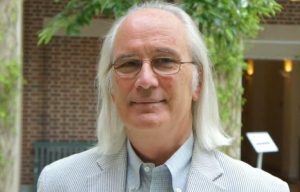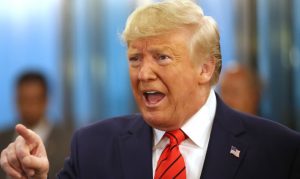Global health governance practitioners are imagining alarms ringing in that arena following the decision of the United States Government to close down a global health surveillance facility. A report in the New York Times (NYT) earlier today is the source of the alarm.
Called Predict, the global health surveillance facility enabled scientists and global health governance experts to search and identify animal viruses that could infect human beings with a view to preempting associated pandemics. A perfect example of such is Ebola.

Dennis Carrol, ideologue of Predict

Superintending death of Predict?
According to the NYT story by Donald G. McNeil Jr. (Scientists Were Hunting for the Next Ebola. Now the U.S. Has Cut Off Their Funding), the initiative ran by the United States Agency for International Development, (USAID) for the past decade has been able to collect over 140,000 biological samples from animals and also found over 1,000 new viruses, including a new strain of Ebola. Similarly, the initiative has not only trained about 5,000 people in 30 African and Asian countries, it has also built or strengthened 60 medical research laboratories, mostly in poor countries.
All that will now be lost to what the newspaper quotes Dennis Carroll, the former director of USAID’s emerging threats division as calling “the ascension of risk-averse bureaucrats”. Carroll, wrote the NYT, helped design Predict, oversaw it for a decade and retired when it was shut down.
While the US Congress and the George W. Bush and Barack Obama regimes were said to have tremendously supported the initiative, Dr. Carroll, who is now a fellow at Texas A&M’s Bush School of Government and Public Service told NYT that things got complicated in the last two years before “Predict was essentially collapsed into hibernation”. And critical observers such as
Some people like Peter Daszak, president of the EcoHealth Alliance, a nonprofit global health organization that received funding from the program are saying that the end of the program “is definitely a loss” The NYT quotes him as saying “Predict was an approach to heading off pandemics, instead of sitting there waiting for them to emerge and then mobilizing. That’s expensive”. The respondent exemplified his claim of expensiveness of waiting for the explosive moment by saying that “The United States spent $5 billion fighting Ebola in West Africa”, contrasting that to the about $207 million spent on the entire initiative in the past decade.

SARS tested China’s global governance practice but it is now a power with resources to mount own Predict although it hasn’t yet
Triggered by the H5N1 bird flu that scared the global health establishment in 2005, it has also been informed by discovery of what NYT described as many lethal viruses lurking in wild and domestic animals exemplified by AIDS originating in chimpanzees and probably being first contracted by bushmeat hunters and/or eaters; Ebola which circulates in bats and apes and while SARS (Severe Acute Respiratory Syndrome) found in captive civet cats in China early 2003; Nipah virus in Asia traced to pigs or date palm and so on.
In relation to Africa, Predict is credited with researchers who determined exactly which bat species carried the Ebola Zaire strain that caused it just as another team in Sierra Leone is credited with discovering a new strain of the virus now known as Ebola Bombali.
Although the report mentioned parts of what Predict was doing being taken over by Pentagon, the consensus seems to be that when it is not Predict, it is not the same as Predict.
The emergence of such areas as health, oil, the environment or climate change as subjects of international security in the aftermath of the post Cold War explains the current alarm over what a national government such as the United States does or doesn’t with an initiative such as Predict. The quantum of global travel today is such that pandemics, for instance, are not just health issues but are as threatening to the global order as much as nuclear weapons.
The resources and capability of the USG as well as the panoptic capability of a great power does not exist anywhere else as for the US to willfully close such a programme without other countries being concerned.
Instructively, the NYT quoted Dr. Gro Harlem Brundtland, the former prime minister of Norway and former World Health Organization director-general in the report as saying that “Americans need to understand how much their health security depends on that of other countries, often countries that have no capacity to do this themselves”. The paper further quotes her as saying that allowing Predict to end is really unfortunate and the opposite of what the rest of the world would like to see happening. Many would say that the co-chair of a panel that had only last month expressed worry about the world’s state of preparedness for pandemics, Dr. Brundtland knows what she is talking about
Not being the source of the original story, Intervention has no idea of what reactions are trailing it and what US competitors for global primacy might be saying. It would be interesting to see what follows generally and which next angle of the subject the NYT takes up next.




























